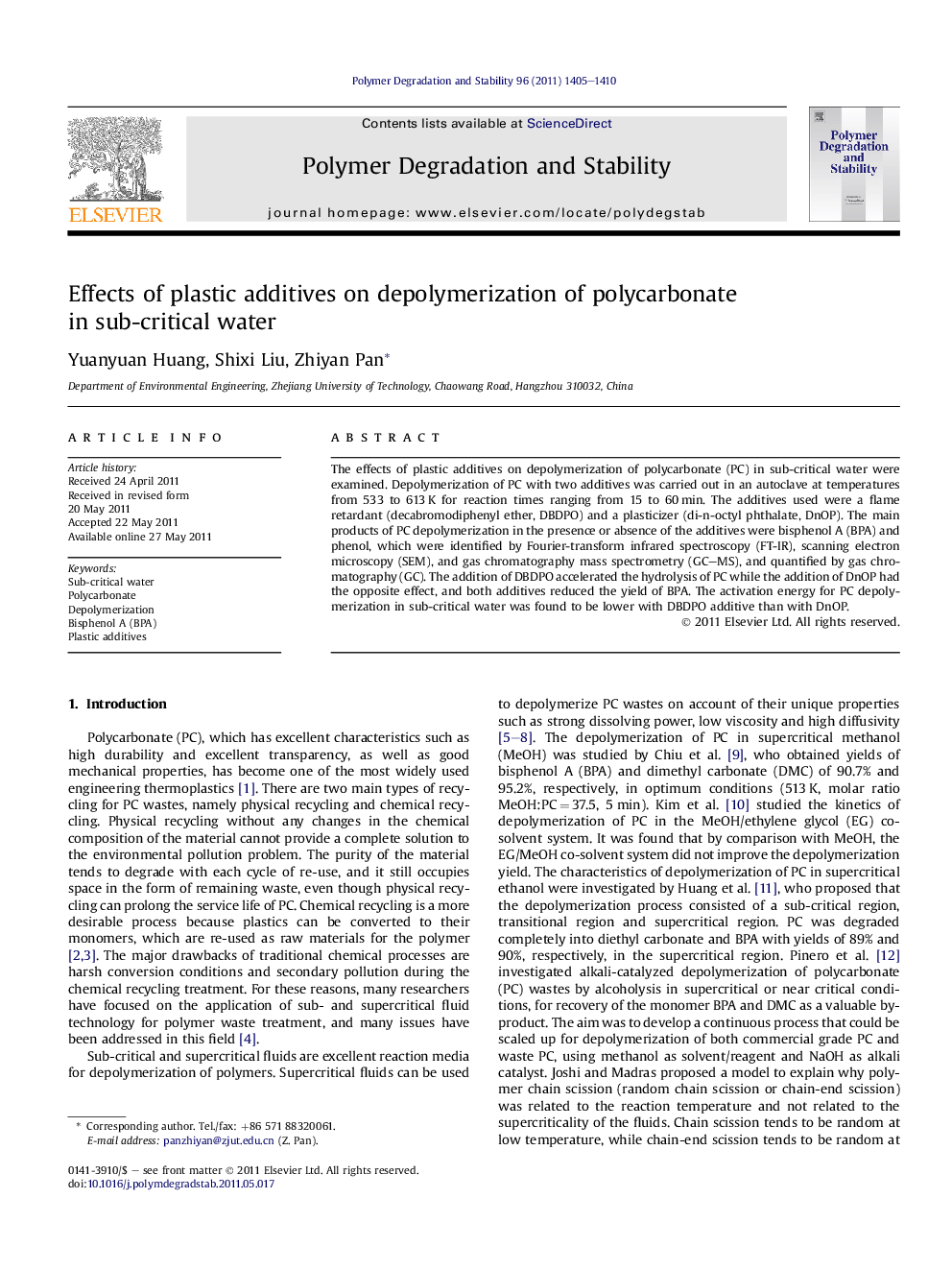| Article ID | Journal | Published Year | Pages | File Type |
|---|---|---|---|---|
| 5202604 | Polymer Degradation and Stability | 2011 | 6 Pages |
The effects of plastic additives on depolymerization of polycarbonate (PC) in sub-critical water were examined. Depolymerization of PC with two additives was carried out in an autoclave at temperatures from 533 to 613Â K for reaction times ranging from 15 to 60Â min. The additives used were a flame retardant (decabromodiphenyl ether, DBDPO) and a plasticizer (di-n-octyl phthalate, DnOP). The main products of PC depolymerization in the presence or absence of the additives were bisphenol A (BPA) and phenol, which were identified by Fourier-transform infrared spectroscopy (FT-IR), scanning electron microscopy (SEM), and gas chromatography mass spectrometry (GC-MS), and quantified by gas chromatography (GC). The addition of DBDPO accelerated the hydrolysis of PC while the addition of DnOP had the opposite effect, and both additives reduced the yield of BPA. The activation energy for PC depolymerization in sub-critical water was found to be lower with DBDPO additive than with DnOP.
⺠A mechanism of PC depolymerization with additives in sub-critical water is presented. ⺠The addition of DBDPO accelerated the depolymerization of PC than DnOP did. ⺠Both DBDPO and DnOP reduced the yield of BPA in PC depolymerization. ⺠The activation energy was 116.48kJ/mol for PC depolymerization with added DBDPO. ⺠The activation energy was 147.17 kJ/mol for PC with added DnOP.
